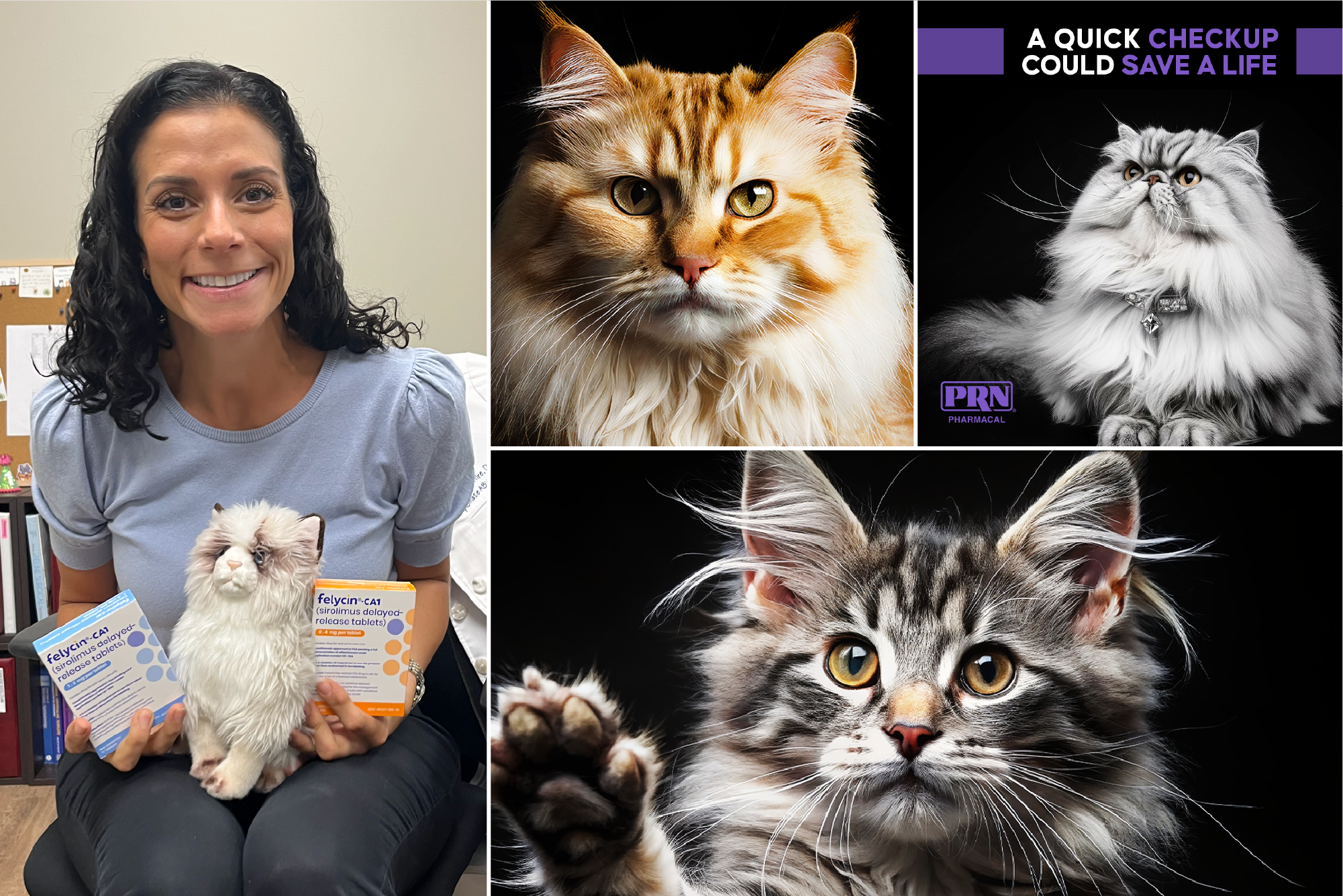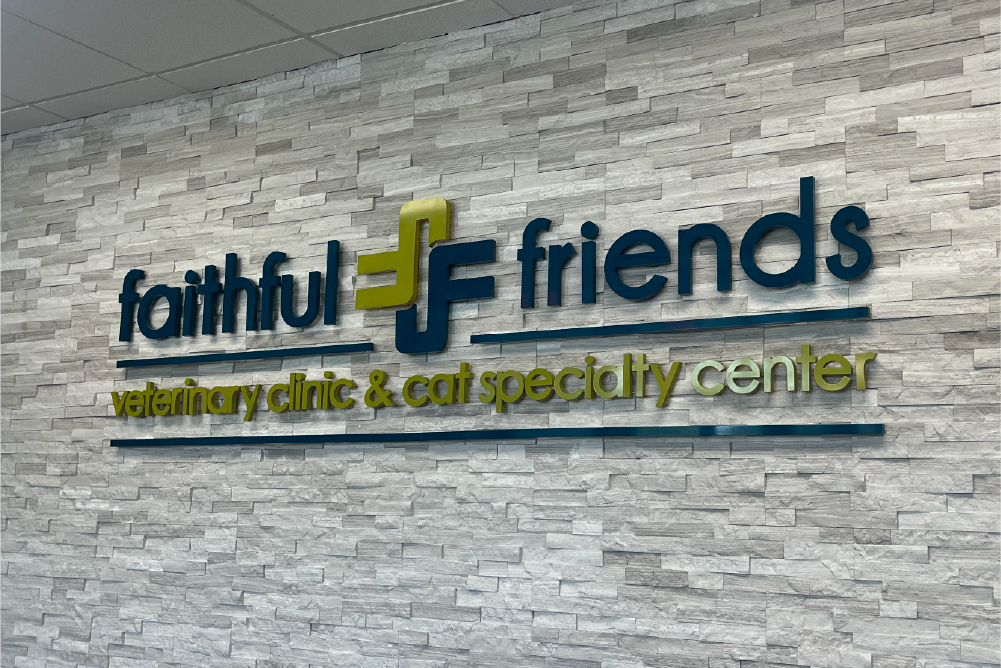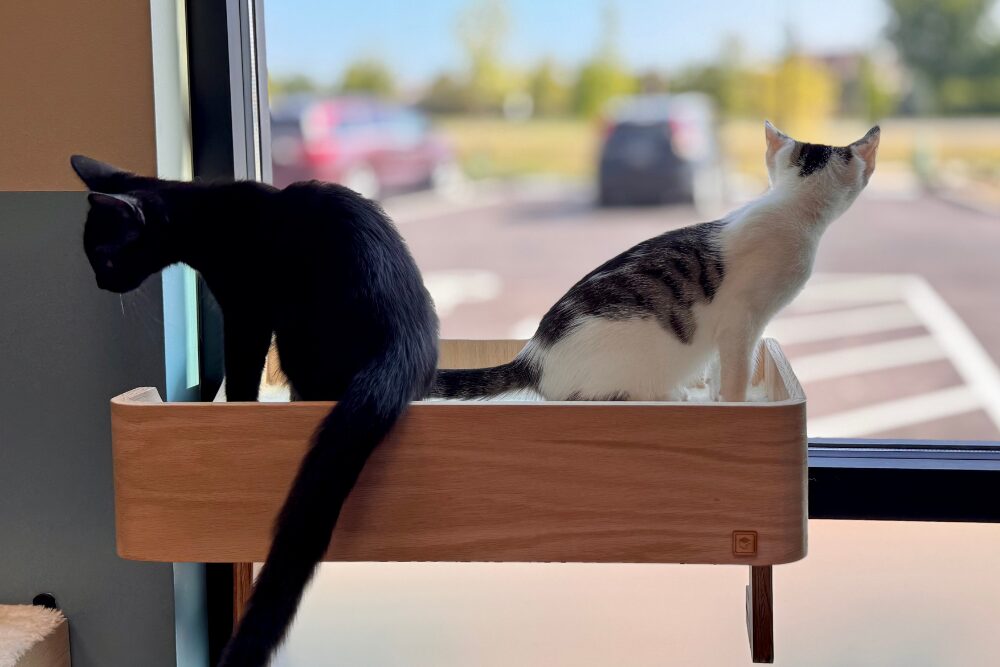If you’ve ever lost a cat to heart disease, you know how helpless it can feel. Hypertrophic cardiomyopathy (HCM), the most common heart disease in cats, has long been considered a “silent killer,” often showing no signs until it’s too late.
But today, we finally have hope.
Meet Felycin-CA1: The First FDA Conditionally Approved Treatment for Subclinical HCM
Felycin®-CA1 is the first and only FDA conditionally approved once-weekly drug for the management of ventricular hypertrophy in cats with subclinical hypertrophic cardiomyopathy (HCM) – that means it’s intended for cats with HCM who have not yet developed outward symptoms of heart failure.
This is a groundbreaking shift. In the past, veterinarians had little to offer once an HCM diagnosis was made, other than monitoring and preparing for eventual heart failure. Now, early detection means early action—and the possibility of slowing disease progression before symptoms arise.
Why Early Detection Matters
HCM affects 1 in 7 cats—think about that the next time you’re with your cat-loving friends. That’s one reason why annual exams, routine bloodwork, and regular heart screenings are so critical. Often, the only early clue is a subtle heart murmur picked up during a wellness check.
As Dr. Ashlie Saffire, board-certified feline specialist and key opinion leader on this new treatment, explains:
“We’ve waited a long time for a treatment like this. For years, I’ve diagnosed cats with subclinical HCM and had to tell families we just had to ‘wait and watch.’ We can only treat clinical signs as the disease progresses. It’s absolutely heartbreaking. Now, we can finally do something proactive with this diagnosis and potentially prevent, or delay progressive left ventricular hypertrophy.”
Dr. Saffire is one of the first veterinarians in Ohio to prescribe Felycin-CA1, and she recently started it for one of her most beloved patients, her own cat, Chicken.
Chicken’s Story: One Cat’s Journey with HCM
Earlier this year, Dr. Saffire’s own cat, Chicken, was diagnosed with HCM after routine screening, and an echocardiogram confirmed the disease had progressed.
Rather than wait, Chicken became one of the first patients at Faithful Friends Vet Clinic and Cat Specialty Center to begin treatment with Felycin-CA1.
“We’ve been monitoring Chicken’s heart for a couple of years,” says Dr. Saffire. “When we saw progression on her echo, we started her on Felycin-CA1 right away. It was empowering to finally do something.”
Chicken will undergo regular check-ins every 3 months, including follow-up x-rays and echocardiograms to monitor the effects of treatment. Her story is one we’ll be sharing more of, because every cat deserves the chance she’s now getting.
How Felycin-CA1 Works
Felycin-CA1 contains sirolimus, also known as rapamycin, which inhibits one of the pathways that leads to heart remodeling and the pathologic hypertrophy which develops in cats with HCM. It’s administered orally once a week. A Veterinarian must confirm the diagnosis through echocardiography and ensure no signs of heart failure are present before prescribing. That’s why early and accurate screening is essential.
Faithful Friends Veterinary Clinic and Cat Specialty Center Is Now Prescribing Felycin-CA1
Our clinic is now equipped to diagnose and treat HCM with this revolutionary medication. With the availability of performing on-site echocardiograms by a boarded cardiologist, we can evaluate your cat’s heart health without the stress of external referrals.
Whether your cat is showing signs of a murmur, or you’re simply curious about preventive care, now is the time to test. And if we detect HCM early, we can take action.
3 Things Every Cat Parent Should Do Today:
- Schedule your cat’s annual wellness exam. Early detection starts with listening to the heart and performing annual wellness labwork. Ask if a proBNP screening blood test is right for your cat.
- Ask about echocardiograms—especially if your cat is a breed prone to HCM (like Maine Coons, Ragdolls, Sphinx and Persians).
- Don’t ignore heart murmurs. Even if your cat seems fine, a murmur could be a sign of early disease.
Felycin-CA1 represents more than just a new medication; it’s a new chapter for feline cardiology and for families who love their cats like family.
Want to learn more or schedule a heart screening for your cat? Call or text us today at 614-389-0997.
🎧 Interested in hearing more about this groundbreaking new treatment? Listen to Dr. Saffire’s podcast interview on VETgirl!




